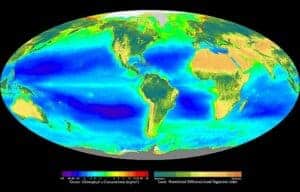Excel with AP Biology Tutors
“Why is this membrane transport stuff so confusing?” “I read about gene expression for hours, but it still makes no sense.” “I just can’t visualize these complex processes!”
Sound familiar? Break down the biological barriers with Seattle Tutor Services.
“…said the session was incredibly insightful and finally demystified gene regulation. They’re eager to continue with weekly sessions for the rest of the semester.” -M
“The session made photosynthesis click! We’ve already scheduled more to prepare for the AP exam.” -K

AP Biology Tutors & Help
How do tutors help?
Mastering Core Biological Concepts
Cell structure and function, genetics, evolution, ecology, and biological systems—our tutors help make sense of these complex areas, creating a strong foundation for advanced study.
Developing Scientific Thinking
Biology isn’t just memorizing facts–it’s about inquiry and analysis. Tutors emphasize conceptual connections, help interpret diagrams/data, and teach how to design experiments or analyze research findings.
Effective AP Exam Strategies
The AP Biology exam features complex multiple-choice questions and detailed free-response prompts. Tutors break down past exam questions, practice data analysis, and teach strategies for responding clearly and concisely under exam conditions.
Lab Work and Experimental Design
Laboratory and data interpretation skills are vital. AP Biology tutors guide you through classic labs, experimental design, statistical analysis (e.g., chi-square tests), and crafting clear, evidence-based lab reports.
Building Confidence and Scientific Curiosity
With its breadth and analytical demands, AP Biology can seem overwhelming. A skilled tutor supports active questioning, critical thinking, and a genuine passion for biology.
AP Biology Topics We Tutor:
Unit 1: Chemistry of Life
- Structure and function of macromolecules (proteins, carbohydrates, lipids, nucleic acids)
- Properties of water and its significance for life
- Enzyme structure, function, and factors affecting enzyme activity
Unit 2: Cell Structure and Function
- Prokaryotic vs. eukaryotic cells
- Structure/function of organelles (nucleus, mitochondria, chloroplasts, ER, Golgi, lysosomes, cytoskeleton, etc.)
- Cell membranes: structure, transport (diffusion, osmosis, facilitated diffusion, active transport)
- Cell communication: signal transduction pathways, receptors, feedback mechanisms
Unit 3: Cellular Energetics

- ATP and energy coupling
- Photosynthesis: light-dependent and independent reactions
- Cellular respiration: glycolysis, Krebs cycle, electron transport chain
- Fermentation and alternative metabolic pathways
- Regulation of metabolic pathways
Unit 4: Cell Communication and Cell Cycle
- Types and stages of cell signaling
- Cell cycle phases: interphase, mitosis, cytokinesis
- Regulation of the cell cycle and cancer
Unit 5: Heredity
- Mendelian genetics: Punnett squares, inheritance patterns
- Non-Mendelian patterns: incomplete dominance, codominance, linked genes, sex-linked traits
- Meiosis and genetic variation
- Chromosomal inheritance, gene mapping
Unit 6: Gene Expression and Regulation
- Structure and function of DNA and RNA
- DNA replication, transcription, translation
- Regulation of gene expression (prokaryotic vs. eukaryotic)
- Mutations, biotechnology (PCR, genetic engineering, CRISPR)
Unit 7: Natural Selection

- Evidence for evolution: fossils, comparative anatomy/genomics
- Mechanisms of evolution: natural selection, genetic drift, gene flow, mutation
- Hardy-Weinberg equilibrium
- Speciation and phylogenetics
Unit 8: Ecology
- Ecosystems and biomes
- Energy flow, food webs, and trophic levels
- Population dynamics and carrying capacity
- Symbiotic relationships and community structure
- Human impact on the environment, conservation biology
Unit 9: Biological Diversity
- Structure, function, and diversity of plants, animals, fungi, and microorganisms
- Comparative physiology: respiration, circulation, excretion, hormonal and neural control
- Immunity and responses to disease
- Animal behavior and ecological interactions
Math and Skills for AP Biology:
- Prerequisites: Successful completion of introductory high school biology and chemistry is recommended. Maybe you’ve taken AP chem and even worked with an AP chemistry tutor
- Skills emphasized: Interpreting graphs and data, using simple statistics (mean, standard deviation, chi-square), experimental design, and basic probability.
- No advanced math is required.
UW Biology Tutors & Help
University of Washington offers foundational biology sequences for STEM majors, including:
- BIOL 180, 200, 220: Core biology sequence for science and pre-health majors, covering structure/function, genetics, cellular energetics, evolution, and ecology.
- Other specialized or introductory biology courses.
How UW Biology makes a difference:
UW’s biology courses are known for high expectations and a fast pace. Our tutors help by:
- Solidifying biological foundations, including any high school knowledge gaps
- Teaching data analysis, experimental design, and problem-solving
- Providing custom strategies for lecture, discussion, and lab success
Text 206-999-0666 or email schuyler@tutoringservicesseattle.com for in-person or online tutoring options. Rates range from $65-$125 depending on modality and location.
Contact me via email schuyler@tutoringservicesseattle.com, or call/text 206.999.0666 . I typically respond within 2 hrs.




